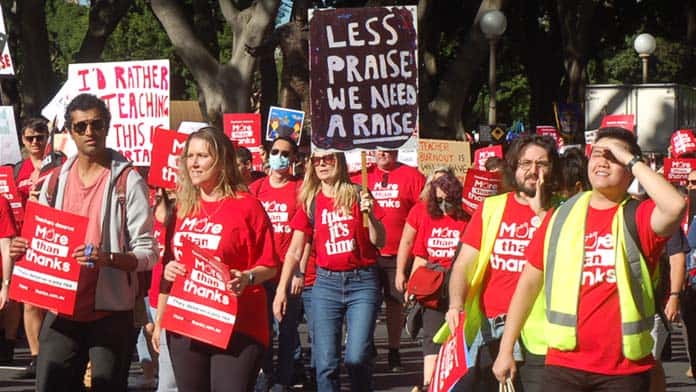For decades, industry-wide bargaining was the bedrock of Australia’s industrial relations system.
The system of industry-wide Awards that set wages and conditions allowed unions to stage co-ordinated strikes and industrial campaigns on an industry-wide basis. There were strikes that shut down the entire metal working industry, the whole public transport system, and national port strikes.
Unions were able to use their membership strength at large workplaces to push up wages and conditions across smaller workplaces in the same industry.
It was industry-wide action that won some of the major gains for workers of previous decades, like weekend penalty rates, the five day working week and annual leave.
In 1946-47, six month of industrial action by 20,000 Victorian metalworkers, alongside industrial action in other states, forced the Arbitration Court to reduce working hours to a 40 hours a week, as well as deliver a major wage increase in the nationwide Award.
This set a benchmark that soon flowed on to workers in other industries.
Similarly, in the early 1960s left unions staged rolling industrial action that pushed the Arbitration Commission to deliver workers three week’s annual leave in 1964.
Unions were still able to organise industrial action in pursuit of industry-wide conditions until the 1980s. In 1981 a national strike saw 500,000 metalworkers stop work for 48 hours at around 7000 factories, as part of a campaign that eventually won a shorter 38 hour week.
Current industrial rules ban industry-wide “pattern bargaining”, where unions stage industrial action to demand common wages and conditions across an industry.
The proposal for multi-employer or sector bargaining may loosen this, but likely only for some industries not currently part of enterprise bargaining, like childcare, aged care or other low paid workers.
To seriously improve wages, unions need to bargain industry-wide across every industry—backed with a campaign of militant, defiant strike action.






